Photographs: Mukesh Gupta/Reuters. Tinesh Bhasin
The Bombay Stock Exchange Sensitive Index, or Sensex, closed at 3972.12 points on December 29, 2000. Almost 10 years later, it closed at 20,256.03 points on December 29 a whopping rise of 410 per cent.
In other words, Rs 1 lakh invested at the start of the decade would be worth Rs 5 lakh now....
10 lessons from the stock market
Image: Don't put all your eggs in the same basket.Whether it was the dotcom or the real estate boom a couple of years before, the biggest lesson to learn is that one should have a well-diversified stocks portfolio.
During the world wide web frenzy, even non-information technology related companies would just prefix 'e-' to their name or suffix '.com', and the value of the stock would shoot up.Thanks to the global recession, the real estate boom could not get too strong. Between 2007 and 2009, real estate companies became the favourite. An example was the size of the initial public offerings (IPOs).
DLF came with the second biggest IPO of all time and raised Rs 9,187.50 crore (Rs 91.87 billion). Others such as HDIL and Parsvnath Developers raised Rs 1,485 crore (Rs 14.85 billion) and Rs 997.14 crore (Rs 9.97 billion), respectively. Many stocks and investors in them are still to see those valuations.While investors can buy stocks or mutual funds that are in vogue, it is important that they do not overexpose themselves.
...
10 lessons from the stock market
Image: Ketan Parikh.Photographs: Reuters.
When operator-driven stocks fall, it is better to stay away from them. For instance, a number of stocks driven by Ketan Parikh fell sharply when the scam was revealed.
Today, many of them don't exist or are penny stocks. Companies like Himachal Futuristic, SSI Ltd, DSQ Software and Pentamedia Graphics are some such stocks.
...
10 lessons from the stock market
Image: Don't sell in panic.Many investors sold their stocks when the 26/11 terror attacks took place in Mumbai. It was a repeat of what the market saw during the Mumbai deluge in July 2005 (remembered as 26/7).
However, the market shrugged these events to march ahead. "After such events, brokers normally liquidate the position of their clients by force leading to a setback of a day or two for the market. But it always recovers," says SP Tulsian, an investment expert.
...
10 lessons from the stock market
Image: Investing in IPOs is not necessary.Photographs: Reuters.
This is primarily because one is unsure about the stock's future. For instance, the Reliance Power IPO's issue price was Rs 268.75 (price adjusted for bonus), on Wednesday it closed at Rs 152.75.
On the other hand, Coal India IPO's issue price was Rs 232.75 (after discount for retail investors). It closed at Rs 310.35 on December 29. Today, it closed at Rs 310.35. "A person can even skip an IPO and buy the stock later from the open market when the price stabilises," said Parag Parikh, chairman, Parag Parikh Financial Advisory Services.
10 lessons from the stock market
Image: Invest for the long term.Even a passive investor (index investing) would have still made an average of 17.55 per cent annual returns every year. But will it continue? Shankar Sharma, Director, First Global, believes so.
"The market may not give better returns than the current decade. However, an investor can expect similar growth over a 10-year period," he says. But one has to stay invested for the long term.
...
10 lessons from the stock market
Image: Manage your money scientifically.As the country created wealth, every financial institution kept adding divisions that talked about managing your money scientifically. This entails determining a customer's goals, profiling their risk taking ability and deciding on asset allocation.
With time, the wealth managers also launched complicated products and 2009 onwards structured products became bigger and bigger.
Along with this, came "mis-selling" of structured products and the Citibank fraud. Do not buy structured products unless you understand their functionality fully....
10 lessons from the stock market
Image: Dollar notes.Repeatedly the question is raised on the global events' effect on India. When Lehman Brothers collapsed in September 2008, everyone thought the country's stock markets would continue to hum along.
Four months later, they were proved wrong and the stock market corrected from 20,000-odd points to 8,000. Similarly, when China tinkered with its policy rates, the markets tumbled.
The question about global events affecting India will continue to emerge, as foreign institutional investors pour money in the country.
Experts said the theory of decoupling is narrowing with the passage of time. Earlier, global events affected us little. As the FII money flows into India, the market will see a greater impact of global events....
10 lessons from the stock market
Image: Bombay Stock Exchange.And, definitely not for the retail investor. Yes, they are way cheaper than the cash market. But they come with great investing risk.
They became very popular during the peak of the last equity boom in 2008-09. But when the investors realised that derivatives could be a double-edged sword, it was too late.
10 lessons from the stock market
Image: Investors rejoice.Over the decade, the regulator has lowered the cost of mutual funds.
First, the amortisation of new fund offers was scrapped. More recently, the entry load has been banned. This makes them the best option over the long term.
10 lessons from the stock market
Image: Reserve Bank of India.Photographs: Reuters.
While the Reserve Bank of India allows an individual to invest $200,000 annually, it was mutual funds that helped investors take exposure to different economies and actual commodities.
While 2007 saw fund houses launching seven funds, the offering has been growing since then. Currently, there are around 26 such funds.
"This decade India has performed better. Hence, there was not much interest in global funds. However, going forward, the investors would need to look at them as their valuations become attractive," said Mahhendra Jajoo, executive director, Pramerica Asset Managers.

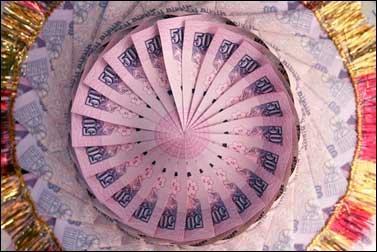
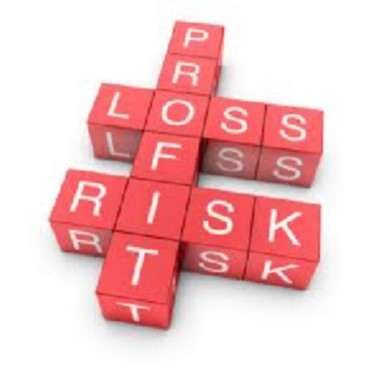
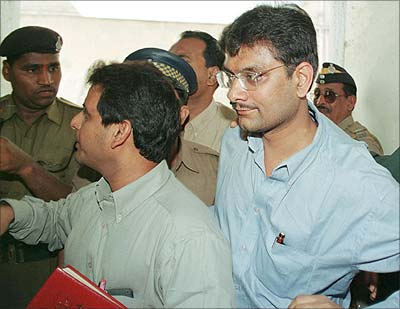



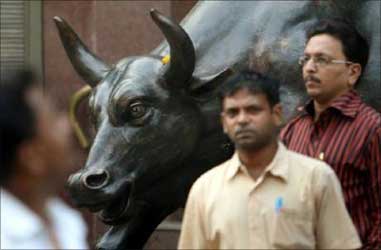

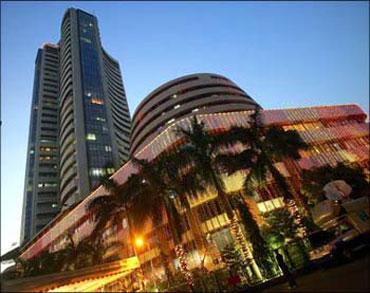
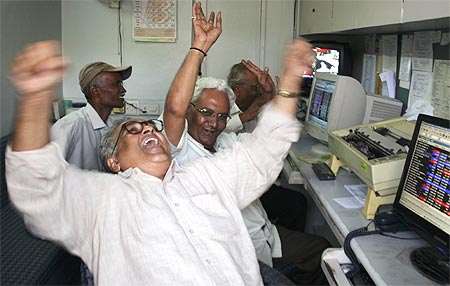
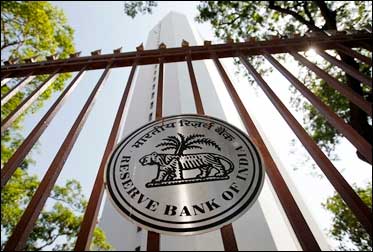

article